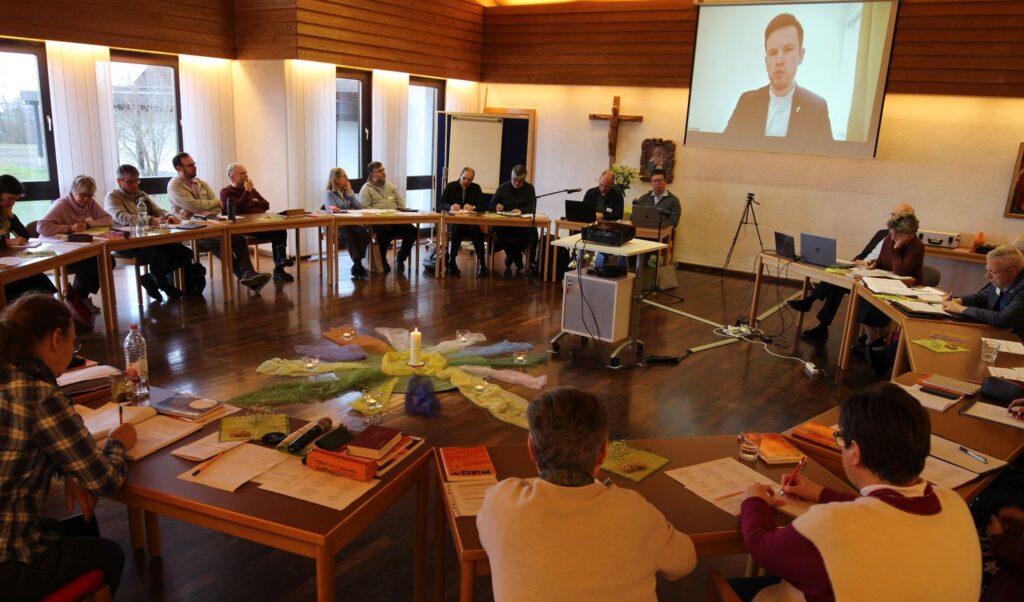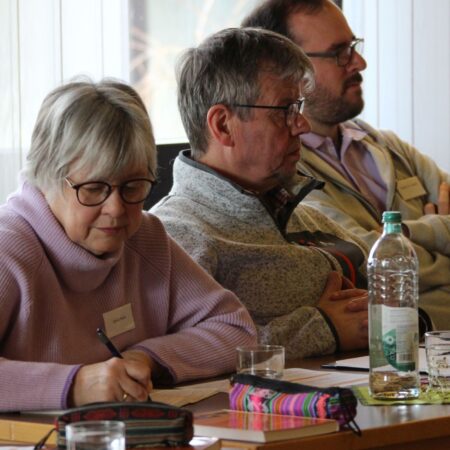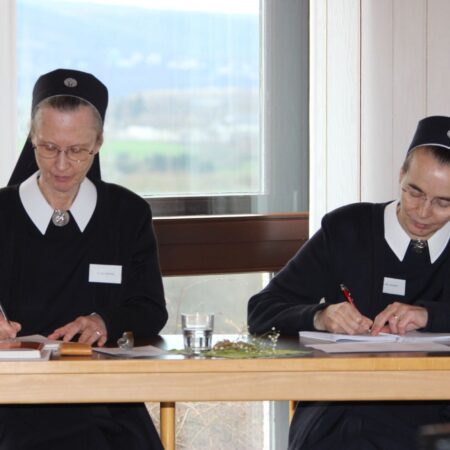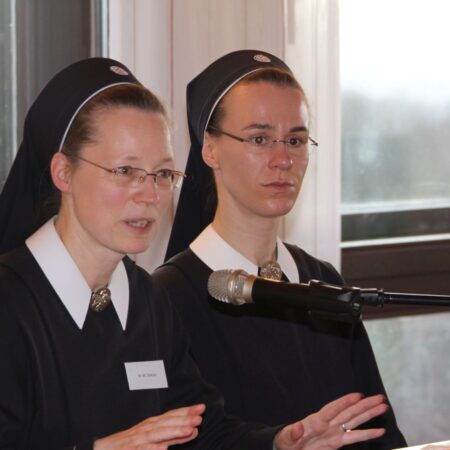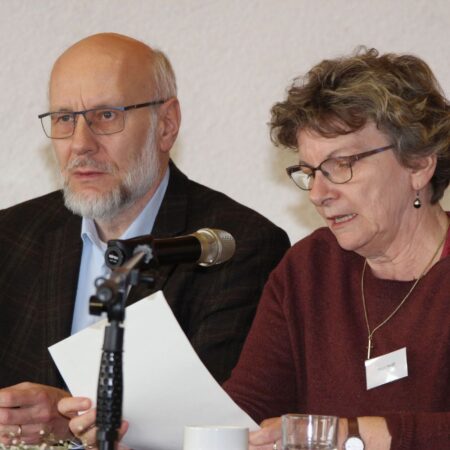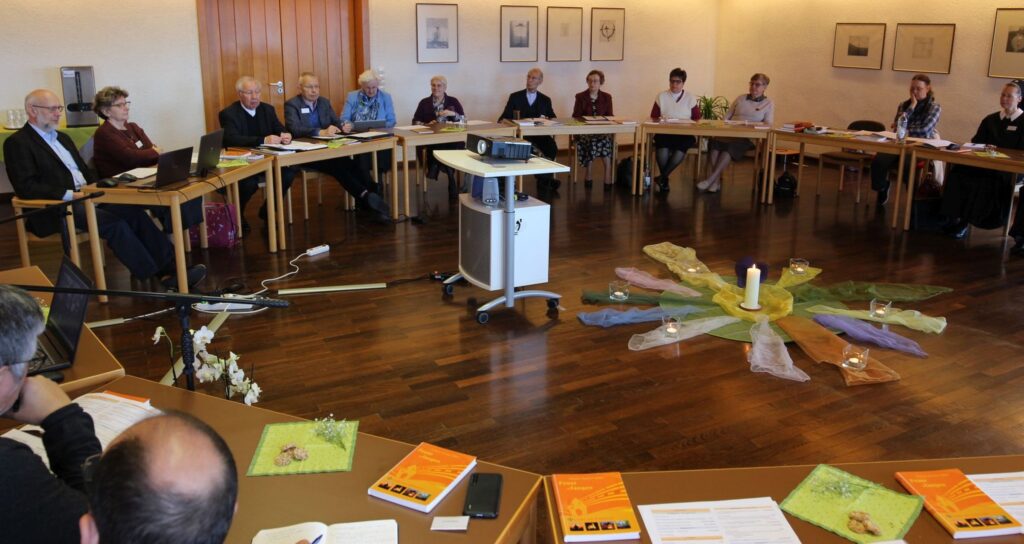From March 23-25, 2024, twenty-eight members of the six Secular Institutes of Schoenstatt
met for a conference in Schoenstatt, Germany at Mt. Moriah.
Theme: The Evangelical Council of Poverty
At this meeting, which has been held annually since 2018, the participants delve deeper into their common charism and profile as Schoenstatt’s core communities. This year’s conference continued the series of encouraging, family-like and content-rich meetings and was dedicated to the evangelical council of poverty for the second time. The various facets of the spirit of poverty, which is given a specific character by the state of life and mission of the respective community, bring to light, as in a mosaic, what our founder means by “Marian-apostolic poverty.”
The conference began with a time of prayer at the tomb of our father and founder. In sharing and praying together, he was the common center for everyone.
“It’s easier to travel light.”
On Saturday morning, the circle was widened through the possibility of online participation. In this way other interested parties from the institutes had the opportunity to take part in the presentations and discussion rounds. Father Jakob Busch, from the Institute of the Schoenstatt-Fathers, introduced the participants to the topic by taking up the trend of minimalism and linking it to Father Joseph Kentenich’s understanding of poverty. The founder was not concerned with the absolute renunciation of earthly goods but about the right attachment to things, which can mean both enjoyment and renunciation. “It’s easier to travel light”, says a song by the band “Silbermond.” Less is more – if it has value for us.
Clear the center. Poverty as an opportunity for God to give.
In his lecture, Brother of Mary Harald M. Knes picked up on the motto of the conference. The title is provocative: How can poverty be an opportunity if we experience it as a threat and insecurity? We feel poverty not only in material and economic hardship, but also in our lack of strength and time, skills, and vocations for our core communities.
And this is where poverty shows itself to be an opportunity for God to give: God needs “empty vessels,” as the founder puts it, which are open to him and into which he can pour his goodness. The example of Father Kentenich’s life makes it clear that we cannot have complete security on earth, but that our ultimate security lies in God. This security is the freedom of a child who knows he is held by his heavenly Father.
Dr. Peter Wolf, a member of the Schoenstatt Priests’ Institute, gave further insights into Father Kentenich’s attitude of poverty: His security in the will of God, his indifference to the things of the world and his dedication to his task allowed him to develop an astonishing fruitfulness under the conditions of the Dachau concentration camp.
The insights into the forms of poverty practiced by the various communities were also very enriching. Following Christ in the spirit of poverty looks different for a married couple with children than for a diocesan priest and again different than for a Sister of Mary.
The members of the Schoenstatt Institutes live a Marian-apostolic poverty: We are given gifts by God in order to continue giving. As an evangelical council, poverty is a way for us to live out our commitment to God and make it fruitful.
Examples from institute members in Romania, Peru, and Chile broadened our view of existential poverty and our mission as secular institutes to make God’s love tangible, even and especially in the misery of the poorest and to encounter and serve God in the poor.
Our community is a wealth.
The meetings of the institutes are not just for joint training, but also are an experience of a family, and mutually strengthen us in our common mission. From this experience, new joy in one’s own vocation and appreciation for the other communities grows. There were also lively conversations and much laughter during the meals and our gatherings in the evening. The participants are in unanimous agreement:
Our fellowship with each other and with our Father and Founder is a real wealth!
Fotos: Bruno Mucha, Familien-Institut, Österreich
